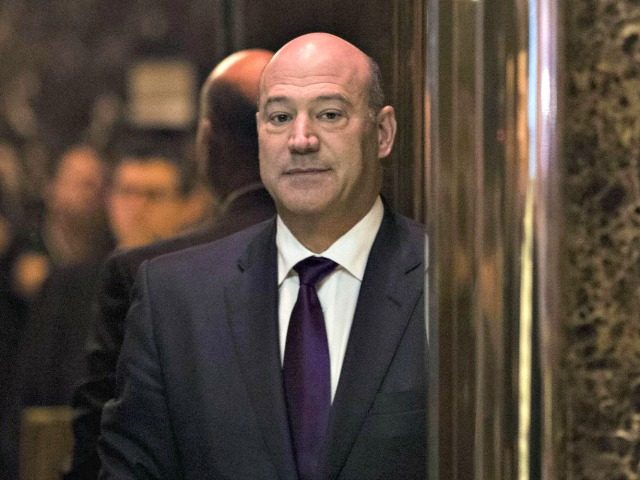Gary Cohn says that he is, indeed, a globalist and that his biggest regret about his time in the White House was not being able to make the personal tax cuts permanent.
Cohn, the former head of the National Economic Council, said in his first interview since leaving the White House that not making the personal income tax cuts permanent is “the one thing that we regret not having been able to do in the original tax bill.”
“We believe individuals deserve a personal tax reduction and we need that to be permanent,” Cohn told CNBC’s Bob Pisani on CNBC’s “Squawk on the Street.”
The Trump administration’s landmark tax cut bill slashed corporate taxes and individual taxes but many of the individual tax cuts were set to expire after a few years. This expiration allowed the bill to bypass Senate limits on bills that would expand the budget deficit over the long term, which meant it could pass without Democratic support.
Cohn explained that because the tax bill treated the personal tax cuts as temporary, it created the impression that many middle-class taxpayers would see a tax hike after the expiration date. This was contrary to the administration’s intention, however, which was to pass the cuts and later make them permanent.
Cohn also endorsed the idea of revisiting the tax code every year, a plan House Ways and Means Chairman Kevin Brady has proposed.
“Chairman Brady has an interesting idea and it’s something that we should do. He thinks we should do tax modifications every year,” Cohn said. “He thinks that this year’s tax bill should be to make the personal side permanent and every year we should get used to making the changes we need to make our taxes more competitive with the world.”
A Globalist and a Free-Trader
While describing himself as a “free trader,” Cohn defended the Trump administration’s trade policies and denied they would lead to a trade war. Cohn left shortly after President Donald announced that the U.S. would put protective tariffs on steel and aluminum imports after a Commerce Department study concluded that a global glut of these metals was a threat to national security.
“I don’t think anyone wants a trade war,” Cohn said. “What we do need in America, and I think everyone does believe in, and we’ve talked about since day one of the administration, is free, fair, open, and reciprocal.”
He said that the recent Trade Avengers trip to China was focused on opening up the market in China to U.S. goods, businesses, and services. China restricts U.S. ownership of businesses in China, requiring U.S. based companies to partner with Chinese firms to access Chinese markets. The administration says this facilitates the theft of U.S. intellectual property and allows government-connected Chinese companies to claim large portions of the profits of these partnerships.
Cohn, who spent most of his career as an executive at Goldman Sachs, set out a view of the U.S. economy that differs from the Trump administration’s focus on reviving U.S. manufacturing. In Cohn’s view, the U.S. should concentrate on policies that allow Americans to buy goods as cheaply as possible so that the rest of their income can be spent on services and savings. This is a very common view of people whose background is in financial services.
Cohn’s remarks did clarify why he objected so strongly to the steel and aluminum tariffs. In his view, these merely raise the cost of U.S. manufacturing by raising the cost of the “inputs” of those goods without providing a compensating economic benefit.
“I really have a problem with input tariffs. I have less of a problem with finished good tariffs because you are not really affecting all the downstream production,” he said.
That suggests that Cohn is less opposed to the tariffs on Chinese products that the administration is currently planning on implementing than he was on the metals tariffs.
Cohn also admitted that he is a globalist as opposed to an economic nationalist, a position Trump teased him about during his final days in the White House. Trump reportedly often referred to Cohn as “globalist Gary.”
“I’m a globalist,” Cohn said. “I believe we are very good at doing certain things in the United States, other countries are very good at doing what they do. We should buy from them what they’re good at, we should sell to them what we’re good at. There’s comparative advantage. I don’t believe we can manufacture, make, and produce everything we need in the United States for ourselves at the most efficient and effective price available.”
Cohn said he is “pretty bullish on the American economy this year.” Corporate tax cuts, Cohn said, will result in more capital spending but there may be some delay as businesses take time to plan their expansions. Cohn also said that he does not believe interest rates will rise rapidly, in part because wage growth has remained low and inflation does not appear to be heading toward dangerous levels.

COMMENTS
Please let us know if you're having issues with commenting.